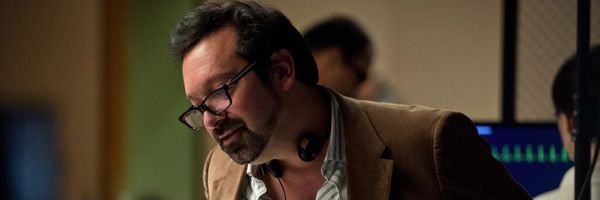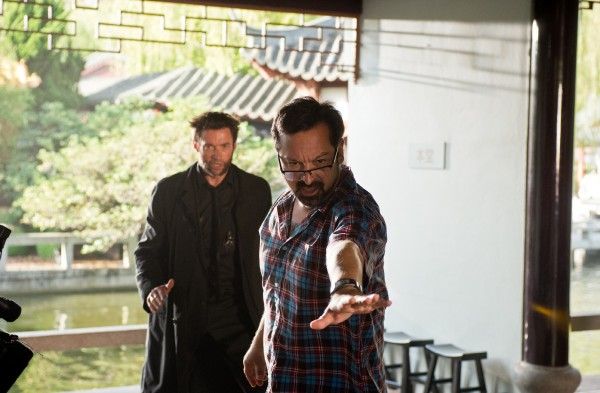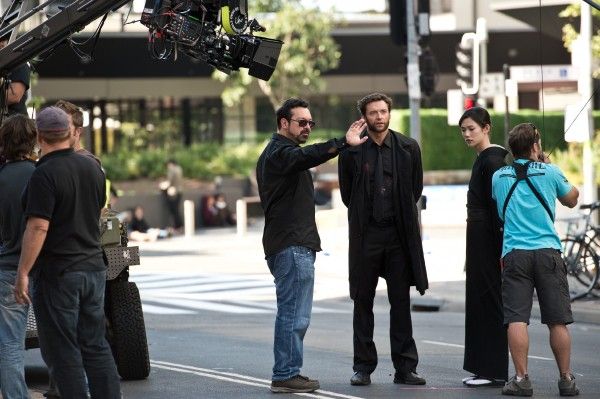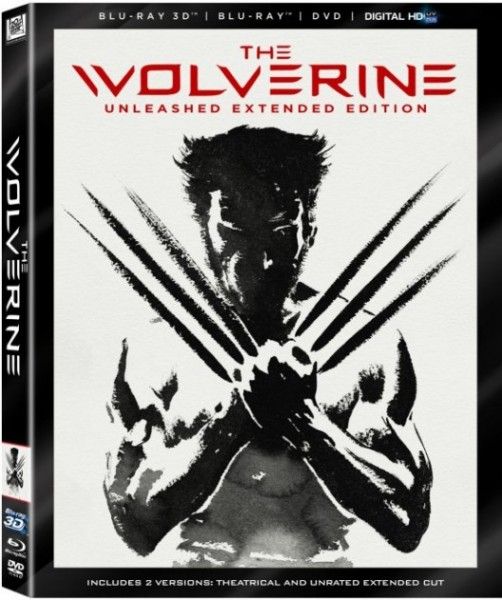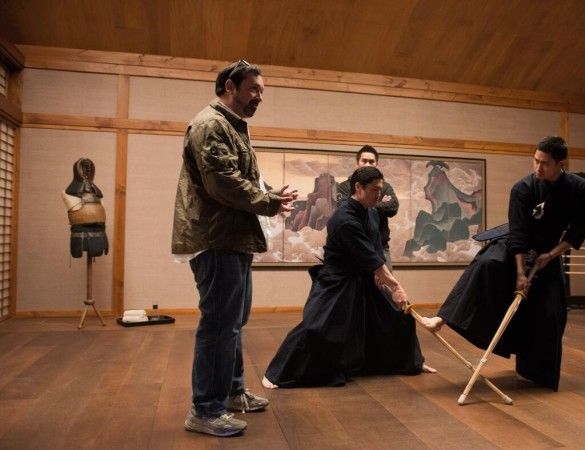There weren’t really any expectations for The Wolverine. Following the less-said-the-better one-two punch of X-Men: The Last Stand and X-Men Origins Wolverine, the series and its franchise star James ‘Logan’ Howlett (aka Wolverine) seemed more than a little overripe. There just didn’t seem much left to mine from The Wolverine. The character, the obvious standout of X-Men and X2, now felt repetitive and dull. Just the same note of false bravado masking seething rage repeated ad infinitum. Which is why The Wolverine was such an unexpected surprise. Less a comic book than a drama that just so happens to star a guy with claws, The Wolverine unearthed hidden depths of its titular character. In the hands of filmmaker James Mangold, the archly hyper-masculine Wolverine became a tragic figure of ineffectual heroism. What happens when the hero can’t save the day? Who does he then become? How does he then define himself?
Last night, Fox hosted a screening of The Wolverine in anticipation of the film’s release on Blu-ray & DVD today. After the screening, James Mangold spoke one-on-one with Collider about pitching such a relatively small scale and idiosyncratic tent-pole blockbuster to Fox, the representation of Japan within the film and how The Wolverine deconstructs the superhero genre. In addition Mangold gave a status update on the development and writing of the recently announced sequel The Wolverine 2. For the full interview, hit the jump.
What is [Logan] running from? What is he avoiding? And it occurred to me that he’s running from the fact that anyone he cares for dies… I always try to think when I’m putting together an ensemble, how you take a theme and make sure it’s represented [within the film]. So when I came on The Wolverine, I wrote on the back of the script very early ‘Everyone I love will die’. Then I thought how do I make a tent-pole movie about ‘death’. So you have Logan – an immortal who wishes he could die. You have Mariko – a mortal who wishes she could die and can. You have her grandfather who is at the edge of death and doesn’t want to die. You have a character like Yukio who can see death around all corners. And then, of course, you have Jean Grey who’s actually dead…
--James Mangold on The Wolverine
Collider: It was fascinating to hear you talk on how the movie’s about death. I was just wondering how do you pitch a 150 [million dollar] movie about ‘death’ to a studio?
JAMES MANGOLD: Actually it’s only 117 [million].
Oh – I overshot it a bit….
MANGOLD: You know it’s interesting you bring up that question because that was exactly what I pitched them and they hired me. So the reality is you never – it’s weird to say and I don’t want to make myself sound ungrateful – but you don’t want a job like this if you’re not doing what you believe. It’s really way too much work. I started this process well over two and a half years ago. What a bore if I was still talking about the film and I didn’t like what it was about. So the reality is it’s almost an act of self-preservation. You evolve to a point where you’re like ‘This is what I’m interested in and if they don’t want to make that then goodbye’. Because I’m not into spending the next two and a half years of my life doing something I’m not interested in.
Was it difficult convincing the studio to do a self-contained Wolverine story?
MANGOLD: To be honest I was the one [who was] very hesitant about doing this. Then I got this idea and I thought ‘They’ll [the studio] shoot it down’ and then I sat with them and they told me they loved it. So I thought ‘Well – I have no choice but to make the movie now.’
When you came onto the film, how many pieces of the puzzle were already in place? How far along was the film in development and how much did you change once you became attached?
MANGOLD: Trying to quantify a percentage base [would be impossible]. Chris [McQuarrie] had written a great script but it was very loyal to Claremont/Miller. That feeling that it was about something that I could put my finger on hadn’t completely evolved. He wasn’t done writing. He was still in the middle of a pass and when things ended with Darren [Aronofsky] everything was [halted]. So when I came on, I don’t know if what I was reading was a finished version. I felt like there still needed to be some decision about when the film was taking place. There’s a real trick to doing a film about a character who’s in isolation and doesn’t share anything with anyone. [One] of the decisions that was really important to me when I came on was this idea because of the tsunami in Japan, how [that country] keeps surviving. Literally three of the four greatest nuclear disasters in world history have occurred on an island that’s smaller than Arkansas. You have the ability of [Japan] to heal which I thought was incredibly analogous with Logan. Also I was a big admirer in the first X-Men and in the comics how elements of world history were folded into the movies. The idea I had was that, while the tragedy of the tsunami was way too close to fold into the movie, I felt like there was enough distance to make an American film about Japan where it opens with us bombing them.
I mean -- Japan is as much a character in this film as anybody else.
MANGOLD: That was really important for me.
What was the balance between crafting an accurate representation of Japan and still maintaining a highly stylized comic book feel?
MANGOLD: Well those aren’t necessarily separate. If you spend a lot of time in Japan, the truth is there’s an incredible amount of style there. The people of Japan exist in a wonderful relation to their imaginations. They lead their normal lives and their normal responsibilities and then can extend themselves in fantasy in a way that’s very free and beautiful. And not just geek culture but also the whole country does it. I think it’s a very rich tradition.
It strikes me that a lot of your films deal with archetypes and sort of dismantling them. I look at Cop Land as a deconstruction of Sylvester Stallone, 3:10 To Yuma as a dismantling of the wild outlaw figure and this movie feels like a dismantling of the Wolverine character. What is it about dismantling this [alpha] male archetype that interests you?
MANGOLD: Dismantling sounds like I’m trying to destroy. But what I would say is that when I make films, I’m very conscious of what the person who would least like to see this movie is thinking. I’m always thinking about how to make the movie so that should they be dragged, they might be surprised. Like when I made Walk The Line, one of the reasons I wrote that opening at the prison was I felt if I began in a cotton field some guy would [think] ‘I don’t want to see this movie about some poor sharecropper…’ I’m very conscious of saying ‘No – shut the fuck up. This is going to be good.’ Even in relation to The Wolverine, the opening sequence was not an assault on your senses in the conventional tent-pole sense but an attempt to win you over with imagination. And to say we’re really trying to do it differently. So even if you’re not someone who comes to a movie like this wanting to like it, give us a chance.
Now I don’t want any particular spoilers but how far are you potentially into the pre-production and the writing process on The Wolverine 2?
MANGOLD: Well pre-production – I would say I’m not there yet. But I have taken finger to key. Let’s say that. There’s been typing. And ideas. And talking amongst all the principles.
The Wolverine is currently available today via Digital HD. It will be available on Blu-ray and DVD everywhere December 3rd.

